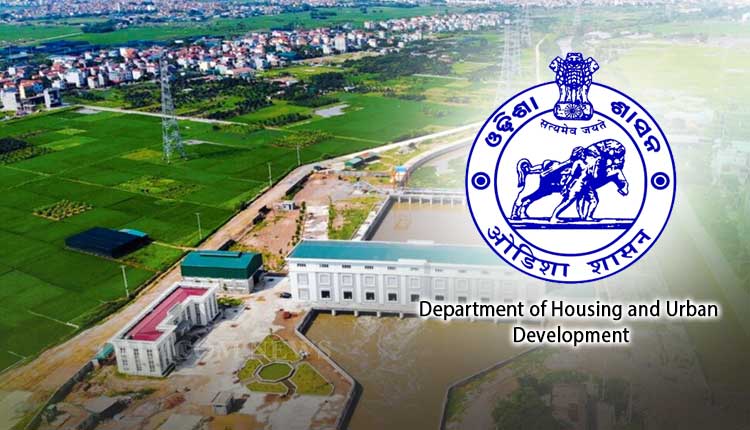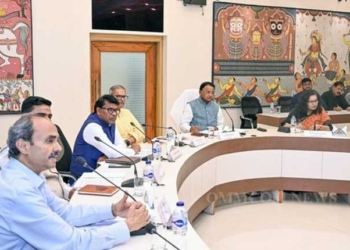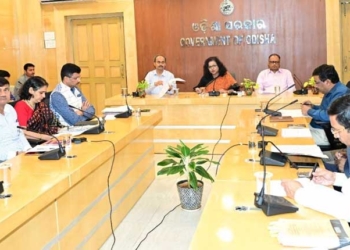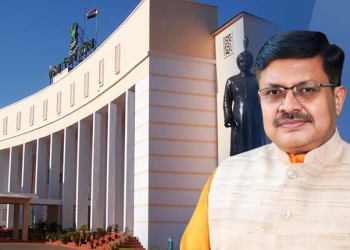Bhubaneswar: The Odisha government on Sunday notified the “Odisha Inclusive Urban Sanitation Policy 2024”, intending to translate the state’s vision of inclusive, equitable, safe, and sustainable sanitation services for all.
The policy aims to integrate the sanitation value chain with modern concepts of circular economy, community partnership, disaster resilience, urban-rural convergence, etc.
This shall come into force from the date of its publication in the official Gazette, read a gazette notification by the Housing and Urban Development Department.
The government has made concerted efforts to increase citizens’ access to sanitation infrastructure and services across cities and towns as part of its ‘Swachh Odisha, Sustha Odisha’ movement. It has undertaken numerous urban sanitation initiatives aimed at improving infrastructure, enhancing service delivery, decentralising governance, and fostering innovative community partnerships.
Furthermore, the inclusion of marginalised populations has underpinned the design and implementation of many of these initiatives.
Consequently, urban sanitation in Odisha has witnessed a significant positive transformation, with increased coverage and the adoption of innovative practices in service delivery, technology, and community participation.
In 2017, Odisha notified the Odisha Urban Sanitation Policy, which aimed at achieving safe sanitation in all cities through fecal sludge and sewage management (FSSM), recognising sanitation as a basic right of citizens. This was followed by an impetus to create infrastructure such as establishing Faecal Sludge Treatment Plants (FSTPs) and adopting mechanisms to enhance the efficiency and effectiveness of services to reach the last mile, covering all Urban Local Bodies (ULBs) in the state.
Over the past two years, the state has embarked on a journey of ‘City-Wide Inclusive Sanitation (CWIS)’ and gender transformative outcomes.
This has prompted a revision of the Odisha Urban Sanitation Policy to reflect the inclusive approaches already adopted in sanitation interventions and to explicitly incorporate an inclusive lens in its policy framework.
Considering the high decadal urban growth that Odisha has experienced in recent years, the state government is now prioritising the expansion and sustainability of sanitation efforts. This requires a more informed, integrated, and cohesive policy, with clear outcomes, for inclusive urban sanitation in the State.
The state government drafted the Odisha Inclusive Urban Sanitation Policy, 2024, with this objective in mind.
This policy document is an effort to capture the vision of Chief Minister Naveen Patnaik to achieve and sustain sanitation outcomes in Odisha with an inclusive approach and the 5T governance framework (Teamwork, Technology, Transparency, Transformation, and Time Limit) for all interventions and processes.
The policy is in alignment with both Sustainable Development Goal (SDG) 6.2 on Sanitation and Hygiene and the United Nations Human Right to Sanitation (2015). The former aims to achieve adequate and equitable sanitation for all, with an emphasis on women, children, and vulnerable individuals, while the latter entitles everyone to accessible, acceptable, and safe sanitation that upholds privacy and dignity.
Furthermore, the policy highlights the need for addressing climate change issues and advocates for climate-resilient infrastructure and communities, with a special focus on urban residents of the economically weaker section (EWS) and other marginalised sections of society.
The Government of Odisha recognises that safe sanitation is a basic human right. Through the Odisha Inclusive Urban Sanitation Policy, 2024, the state commits to expediting and reinforcing efforts to institute inclusive, participatory, sustainable, and accountable sanitation processes and structures. The aim is to achieve improved service delivery outcomes for the entirety of the urban population in the state, ensuring that no one is left behind.















